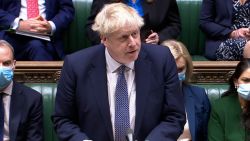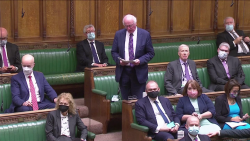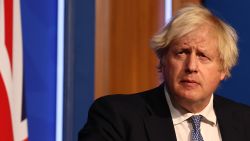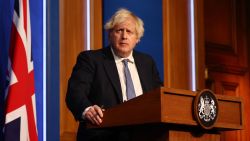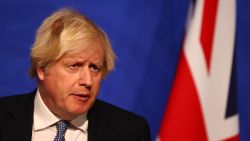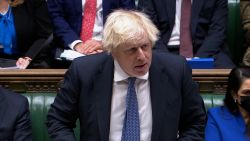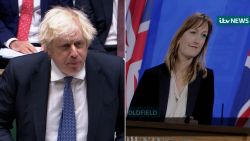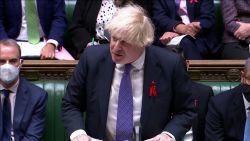British Prime Minister Boris Johnson appears to have won the majority he needs to deliver Brexit. Now the hard work begins.
As the UK general election results still come in, all indications are the ruling Conservative Party will move forward with Johnson’s Brexit plan quickly, possibly holding a vote on it in the newly reorganized House of Commons before the end of the year.
Brexit has dominated UK politics for almost five years now, well before the 2016 vote that sent the country on course to leave the European Union, and many other issues have fallen by the wayside as the debate has become more and more focused on how exactly the UK will leave and whether any Prime Minister could get the parliamentary math right to do so.
Brexit – no matter how hard or soft it ends up being – will have a major impact on the UK economy, and London will need to craft new trade deals to mitigate the potential damage.
We have some idea of what a future UK-EU trading relationship might look like, though it’s likely it will continue to be hashed out for months, if not years, to come. What remains somewhat up in the air is how the country deals with its other important trading partners, chief among them the world’s two leading economies, China and the United States.
Johnson was attacked by the opposition Labour Party throughout the election campaign for cozying up to US President Donald Trump amid suggestions he may be willing to allow US firms access to the UK’s National Health Service and other key public bodies – and potentially lowering regulatory standards in the process.
Trump is a big fan of Johnson, and has showered him with praise in the past – though the UK leader avoided his American counterpart during the election campaign due to Trump’s unpopularity with many voters. The US is also historically the UK’s most important ally and a key trading partner even when compared to the EU.
As the results came in, Trump tweeted: “Looking like a big win for Boris in the UK!
But while a US trade deal may be attractive to some in Johnson’s Conservative Party, Washington is expected to drive a hard bargain that could risk alienating British voters. China offers a potential counterweight to having to lean on Washington too much, but brings with it a host of its own issues. Chief among them being the difficult question of how to balance a relationship with Beijing while not angering Trump amid the ongoing US-China trade war.
Important partner
According to analysis by the United Nations Conference on Trade and Development, China would be the biggest winner from a no-deal Brexit, and will likely see substantial gains from the type of hard leave solution previously mooted by Johnson.
“Countries which would gain the most from a no-deal Brexit are those are currently facing higher tariffs: China, the United States and Japan,” the study said.
Johnson’s predecessor Theresa May worked hard to boost ties with China before her failure to pass a Brexit bill saw her pushed out of her party’s leadership. Speaking ahead of a visit to the country, she said there were “huge trade opportunities in China that we want to help British businesses take advantage of” and called for an intensifying of a “Golden Era” of UK-China relations that was begun – in theory at least – under former Prime Minister David Cameron.
Currently the UK does not do a great deal of trade with China, meaning there is a lot of room to grow – China accounted for just 3.5% of all UK exports and 6.6% of UK imports in 2018. Total trade between the two countries was worth around $90 billion last year, compared to around $220 billion between Germany and China.
Beijing will heartily welcome a more robust trading relationship with the UK, particularly as that will give it greater influence in Europe, even with London out of the Union, according to analysis by the European Council on Foreign Relations.
“Chinese scholars expect that Brexit will weaken the EU’s position on its own values, leading to a softer European posture on Chinese human rights abuses,” the ECFR said in a report. “Economic competition between the UK and EU for Chinese investment is also seen as likely to lead to better terms for Chinese companies.”
China has already seen its influence substantially increase in Europe – particularly among poorer eastern and Mediterranean nations – as leaders in Brussels have been delayed in crafting a new policy for dealing with Beijing as Brexit negotiations dragged on.
Testy relationship
While Johnson and his trade negotiators might be keen to turn on the Chinese money pipe, any deal they strike with Beijing will have to avoid upsetting relations with the US. In particular, the UK government can’t appear to undermine Washington’s pressure in the trade war.
After Johnson took leadership of the Conservative Party in July, Chinese media played up an interview – from his time as foreign secretary – in which he said the UK was “very pro-China,” adding that he was “very enthusiastic” about President Xi Jinping’s signature Belt and Road Initiative (BRI) investment project.
In an editorial, the day after Boris’ victory was announced, the state-run China Daily said Johnson faced a delicate balance between Beijing and Washington.
“Given that the United States has decided to lock horns with China on trade, tech and other issues, it is likely to make it a condition of any deal with the UK that it is precluded from having a free trade agreement with China,” the editorial said. “And a FTA with China is something the UK has also pinned its hopes on post-Brexit.”
As well as trade, Johnson also faces an impending decision on whether to allow Chinese telecoms giant Huawei access to the UK’s 5G network – another area where Washington and Beijing are at loggerheads.
At a NATO meeting earlier this month, Johnson suggested that Huawei could “prejudice our vital national security interests,” and said any decision would be dependent on how it would affect the UK’s Five Eyes intelligence partnership, which includes the US.
The following day however, Johnson appeared to use a Huawei phone to take a selfie after a TV interview. Downing Street told the UK’s Sky News that the “is not the prime minister’s but belongs to a member of his staff.” Hu Xijin, editor of the nationalist Chinese tabloid Global Times, said that Johnson’s use of the phone made his security risk claim “sound hypocritical” and suggested the British leader was attempting to have it both ways on the issue.
Brexit – and the endless parliamentary debates over it – has held British politics in a kind of stasis since 2016, allowing politicians to kick the can down the road on other issues. When he’s done celebrating this week’s victory however, Johnson may realize just how many more difficult hurdles are just over the horizon.



